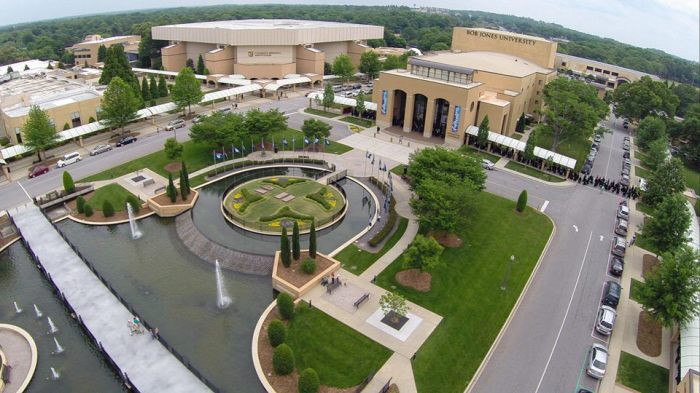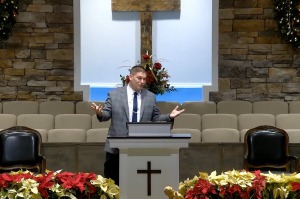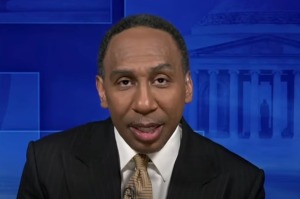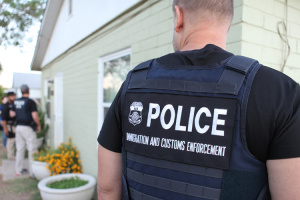Report: Bob Jones University Officials Tell Sexual Assault Victims to 'Repent for Their Sins' and Discourage Them From Filing Police Reports

A recently released independent investigation, which interviewed 43 former students from the Protestant Bob Jones University in South Carolina, has found that the school often discouraged self-identified victims of sexual abuse from filing police reports and instead encouraged victims to repent their "sins."
The 300-page report found that over 60 percent of those surveyed who identified as sexual abuse victims said they were either blamed or met with some sort of disparagement when they sought counseling from BJU personnel in light of their sexual abuse experiences. Additionally, the report found that 47 percent of students surveyed who also identified as sexual abuse victims claim they were either directed by school officials not to file a police report or strongly discouraged to file a report and were instead told to "deal with their own sin."
The report was conducted by the organization Godly Response to Abuse in the Christian Environment (GRACE), which was charged with providing oversight and accountability to BJU in its efforts to "identify any cases in which we need to exercise authentic repentance and demonstrate biblical love to those we have always desired to serve to the best of our ability for the Lord's sake."
Of the 116 people interviewed by GRACE, 50 identified as victims of sexual abuse (43 met with GRACE in-person), the remainder were not students, but are those who have knowledge about the assault victims' circumstances.
About half of the respondents who claimed to be sexual assault victims were victimised before attending school at BJU. Although many of the sexual abuse incidents might not have occurred while at school, BJU officials still treated victims that came forward like they had committed a cardinal sin.
"I felt swept under the carpet," one of the report's self-identified sexual abuse victim's stated in her response. "I felt I had no right to my feelings, that I should just get over it instead of facing it, that I had to respect the person who abused me because they were my father, and I felt like I was being scolded, that I had to hide my feelings and shut up about it. I felt like I did not matter as a person, much less a victim of any abuse, and that anything I was feeling or experiencing was chalked up to me being sinful."
Randy Page, director of public relations for BJU, told The Christian Post that last week the university's president, Steve Pettit, stated in remarks to the faculty, staff and students that the administration "realized that we have failed in meeting the needs of some who sought our help and we have lost their trust."
Petit continued: "I am fully committed to regaining that trust. We understand this will not come through words, but actions, and for those actions to be truly meaningful we must make a long-term commitment that creates genuine, sustainable change. This will take a lot of hard work in the coming months, in fact, years. This is a process of change that must and will happen by the grace of God. This is our solemn pledge."
While not all respondents said the school responded negatively when they disclosed their abuse to school officials, 52.7 percent of survey respondents identifying as sexual abuse victims claim that disclosure of their abuse to the university resulted in either a "very hurtful" or "somewhat hurtful" response. Only 30.5 percent of identified sexual abuse victims said the school's response to their abuse disclosure was "very supportive" or "somewhat supportive."
Another survey respondent said: "the vast majority of those who reported sexual abuse of any kind were immediately disbelieved until it was proven [and many] were viewed as having suspicious motives for seeking justice."
"I was abused from the ages of 6 to 14 by my grandfather," another survey respondent wrote. "When I went for counseling, I was told 'Did you repent for your part of the abuse? Did your body respond favorably? If it did, you need to repent.'"
The investigation also found that 55.8 percent of respondents who identified as sexual abuse victims but did not report their abuse to the university were deterred from doing so based on what they previously learned through BJU "teachings and practices" on sexual abuse.
Pettit, who issued an apology to the students and faculty last Wednesday, the day before the report's official release, for what he called the school's "inadequate, insensitive and counterproductive" counseling methods, added that: "The decision to hire and then rehire GRACE and the willingness to have this report be made public clearly demonstrates BJU's commitment to addressing the difficult issues covered in this report," the report stated.
He continued, "By voluntarily engaging in this independent and transparent process, Bob Jones University has created commendable and historical precedent for Christendom and the watching world."
BJU is not the only Christian college that has struggled to respond appropriately to the their students' sexual abuse claims. According to the Slacktivist blog on the Patheos website, three students at Pensacola Christian College in Florida claim that they were expelled from the school after disclosing that they'd been sexually assaulted.
One of the women, who attended PCC in 2002, claimed that she was restrained with a bungee chord, beaten, then raped by her then-boyfriend while on campus. Within a day of the student filing a police report and going to the hospital for medical treatment, she was allegedly told by the school's dean of women that she was expelled from the school.
Four Christian colleges (two Roman Catholic, one Southern Methodist and one Quaker) are included on a federal list that was released in October containing over 85 colleges that have open "sexual violence investigations." Those schools are Catholic University of America, Southern Methodist University, St. Thomas Aquinas College and Swarthmore College.
As the International Business Times points out, there could be more Christian schools that could qualify to be on the federal investigation list, but since many private Christian schools do not receive federal funding, they are not legally held to the same accountability standards.
BJU, which receives federal funds, is not on the federal investigation list. As an institution that receives federal funding, BJU is subject to Title IX, FERPA and Clery.





























